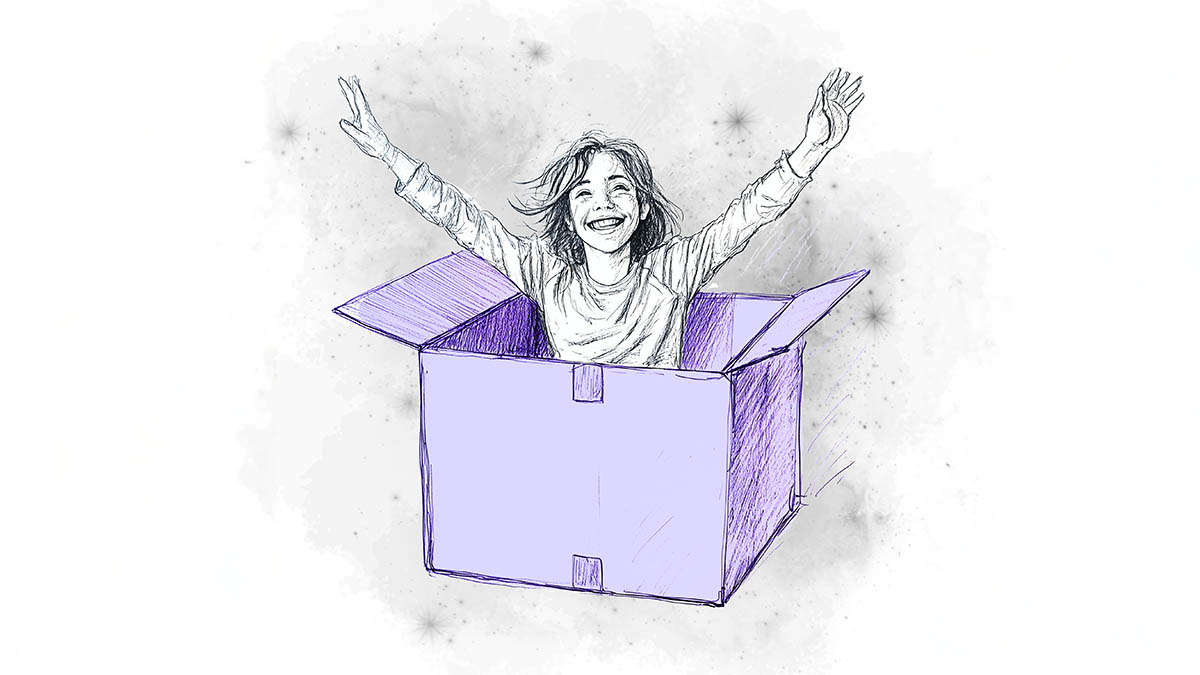Calling your child “shy” might seem harmless, but research shows labels can shape their identity and behaviour—often in limiting ways.
We often do it without even thinking. Labelling our children as shy, cheeky, fussy or even smart. In the right context, calling our children these things are innocent enough. It even helps explain certain types of behaviour.
Yet, there is a very real danger if the label sticks, be that with the people our children interact with or in our children’s own self-belief.
The “night owl” experience
I am unabashedly a night owl. It’s a label I was happy to own . . . until I met my friend Joseph*. It was amusing initially, the teasing Joseph would give me about my preference for nocturnal activities. Then I realised—rather quickly—that Joseph wasn’t simply making a joke.
While the statements would be light-hearted, Joseph almost always immediately discounted me on anything related to the mornings:
- “You’re not going to turn up for morning exercise.”
- “I’m not even going to discuss this with you in the morning.”
- “Of course this isn’t working, you did it in the morning didn’t you?”
It started getting annoying how condescending he would be, how quickly he assumed I never did anything in the mornings. Not that he ever bothered to find out I wake up at six every morning to exercise before starting work at 7.30am.
Now imagine Joseph is your child’s teacher at school and you’ve just told him your child is “not academically inclined”, “very quiet” or “the messy one”. Would Joseph support your child to reach their full potential or would he simply expect your child to consistently do poorly at their schoolwork, not participate in class or always forget their library bag?
Faith and I chat more about labels we live with in the Mums At The Table podcast, Life in the Grey.
The Pygmalion effect
In 1968, psychologists Robert Rosenthal and Lenore Jacobson devised a test. At the start of the school year, they told teachers a special test had identified certain students in their class as “intellectual bloomers”.
The reality was less scientific. The psychologists had simply chosen some students at random who in fact had no significant intellectual advantage over the control group. They were simply labelled as such. At the end of the experiment however, the so-called “bloomers” performed far better than the control group.
Major Wilburn Schrank did a similar experiment in the same year with almost identical results. Random students whose teachers were told were “high potential” performed better than their “low potential” counterparts.
The results of the study have been called the “Pygmalion effect”, which concluded, “teacher expectations worked as a self-fulfilling prophecy. If teachers were led to expect enhanced performance from some children, then the children did indeed show that enhancement.”
Clinical diagnoses and labels
It’s important to distinguish between clinical diagnoses and casual labels, even if they can sometimes be used interchangeably.
Clinical labels such as ADHD or autism are designed to help parents access appropriate support and even guide intervention. Diagnoses made by qualified professionals can help children to thrive in learning environments designed to play to their strengths, changing and adapting as they develop.
For example, highly sensitive children may be labelled “dramatic” or “difficult” by adults who don’t understand their reactions, while a clinical understanding may lead to accommodations and empathy.
Sadly, it’s not unusual for these labels to be thrown around casually, causing them to lose their meaning and create stigma. Labels don’t just influence how others treat us. Perhaps more harmful is when we internalise the label and it becomes our identity.
The psychology of labels
I’d like to think that as a society, we’d moved beyond calling our children hurtful things such as “stupid” or “worthless”. Yet, we overlook other seemingly innocuous labels like “bossy” or “sensitive”.
While saying—and realising—our child has a sensitive nature may help us to understand them better and enable us to provide them with the support they need, consistently telling them they’re sensitive may impact on their self-perception and development.
“Labels have the power to define what an individual will become,” write child development experts Paula Contesse Carvacho and Montserrat Magro Gutiérrez in their article “‘Lazy’, ‘messy’, ‘smart’: how labels affect a child’s personality development”. “They directly impact our beliefs about our abilities, meaning an individual, once labelled, will expect the same outcome from themselves in similar situations.”
The danger of labelling a child is rooted in labelling theory, a school of thought that gained prominence in the 1960s. First used on criminal behaviour, it was argued “as members in society begin to treat these individuals on the basis of their labels, the individuals begin to accept the labels themselves. In other words, an individual engages in a behaviour that is deemed by others as inappropriate, others label that person to be deviant, and eventually the individual internalises and accepts this label.”
What this means is a child would not expect anything different from themselves once they fully accept a label. A child constantly told they’re bad at maths may not even try to understand a new maths concept. A child who always hears they’re smart may end up devastated if they fail at something, even questioning their value as a person. A “shy” child may withdraw from any social participation that elicits a slightly uncomfortable feeling.
Praise the effort, not the outcome
There is power in the words we say to our children and the characteristics we assign them. As Paula and Montserrat write in their The Conversation article, “It is possible, and indeed positive, to resist categorising children by their characteristics or abilities.”
If they’re struggling to do something, such as keeping their room tidy or refusing to do their homework, address the behaviour directly. Try “Do you need help tidying your room?” not “You’re such a messy person”. Try “You seem to have trouble doing your homework, what’s going on?” not “You’re so lazy”.
If they’re struggling with something, introduce the power of the word yet. “You can’t do this maths problem because you haven’t understood it yet.” “This piano piece sounds bad because you haven’t learned it yet.”
If they do something you’d like to celebrate, focus on their effort, choices and progress. “You worked really hard on that” (not “You’re so smart”). “That was very nice of you to share your toys.”
“Praise and positive reinforcement should come at the exact moment in which the action happens: by giving immediate recognition we reinforce the connection between a behaviour and its positive response. In this way, praise or rewards are linked to the action itself, and not to the child’s identity, personality or intrinsic worth,” Paula and Montserrat continue.
Finally, help your child realise they are unique, creative individuals with multifaceted identities. Just because they love reading doesn’t meant they can’t enjoy sports. Just because they’re shy in certain situations doesn’t mean they can’t be outgoing in another.
Our children are still growing and developing. Let’s encourage that by avoiding putting them in a box.
* name changed
Tune in to the Life in the Grey podcast

Life isn’t always black and white. Life in the Grey is a Mums At The Table podcast where we explore the psychological factors that shape our relationships, be that as a parent, a partner or a peer. And don’t worry—it’s short because we ain’t got time for fluff. Expect practical takeaways that you can apply to your own life, whether it’s navigating parenting challenges or finding balance amidst life’s demands. Join us each month as we share stories, insights and reflections that encourage personal growth and foster a sense of connection in our community.
How helpful was this article?
Click on a star to rate it!
4.5 / 5. 2
Be the first to rate this post!
Melody Tan
Related posts
Subscribe
Receive personalised articles from experts and wellness inspiration weekly!

